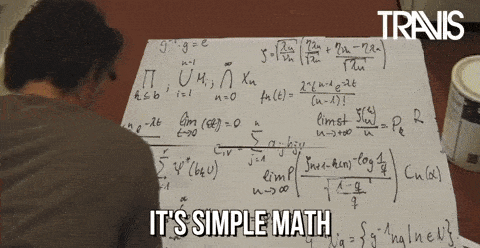- Finterview
- Posts
- If we gave you an offer right now, would you sign it?
If we gave you an offer right now, would you sign it?
Navigating loaded interview questions
⏱ Reading Time: 2 Minutes 24 Seconds
Happy Tuesday, future bankers!
Hope everyone got through their Monday alright. Only four more to go…. unless you’re a banker, that is.
🚀 Let’s get into it.

🔢 Technical Question

Gif by travisband on Giphy
“Walk me through an M&A premiums analysis.”
The purpose of this analysis is to look at similar transactions and see the premiums that buyers have paid to sellers’ share prices when acquiring them.
For example, if a company is trading at $10.00/share and the buyer acquires it for $15.00/share, that’s a 50% premium.
First, select the precedent transactions based on industry, date (past 2-3 years for example), and size (example: over $1 billion market cap).
For each transaction, get the seller’s share price 1 day, 20 days, and 60 days before the transaction was announced (you can also look at even longer intervals, or 30 days, 45 days, etc).
Then, calculate the 1-day premium, 20-day premium, etc. by dividing the per share purchase price by the appropriate share prices on each day.
Get the medians for each set, and then apply them to your company’s current share price, share price 20 days ago, etc. to estimate how much of a premium a buyer might pay for it.
Note that you only use this analysis when valuing public companies because private companies don’t have share prices. Sometimes the set of companies here is exactly the same as your set of precedent transactions but typically it is broader.
🗣 Behavioral Question

Gif by lilly on Giphy
"If we gave you an offer right now, would you sign it?"
The question, "If we gave you an offer right now, would you sign it?" can be a tricky one in an interview. While saying "yes" might seem counterintuitive if you're still exploring options, it can actually be a strategic maneuver in your recruiting. Consider it a temporary step towards a potentially better outcome.
Here's why a seemingly impulsive "yes" can be beneficial:
Securing a Written Offer: A verbal offer is promising, but a written one solidifies your position and opens doors. It outlines the package, start date, and other key details, giving you a concrete base to compare against other opportunities.
Leveraging for Better Options: With a written offer in hand, you can inform other banks you're seriously considering. This puts them on notice and incentivizes them to expedite your applications or interviews.
Maximizing Negotiation Power: Multiple offers put you in the driver's seat. You can compare compensation packages, benefits, and company culture to choose the ideal fit. This empowers you to potentially negotiate with your top contender for better terms.
However, remember this approach requires tact and professionalism. Be upfront with other banks, explaining your intent to compare offers once you've received them. Decline any unwanted offers promptly and graciously. Remember, your actions reflect on you and the professionals you've interacted with.
So, while saying "yes" to a verbal offer might seem unconventional, it can be a calculated play in your job search. Use it strategically to secure a written offer, leverage better options, and ultimately land the job that best aligns with your career goals. Just tread carefully, maintain open communication, and remember that respect goes a long way.
🗞 Industry News
Shares in the Donald Trump-tied SPAC (NASDAQ:DWAC) have been on a tear over the last week or so. Shares have gained ~175% over the last six days due to Trump’s early momentum in the 2024 election, as well as drop-outs from a couple of his key competitors—namely Vivek Ramaswamy and Ron DeSantis. Read more below.
Thanks for tuning in today! Best of luck to everyone!
-The Finterview Team

